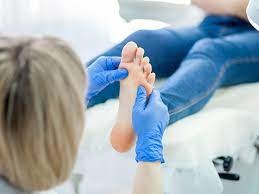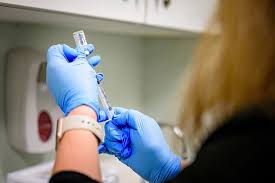The Critical Role of Diabetic Wound Care in Patient Outcomes

Diabetic wound care helps improve healing outcomes and reduces the risk of complications in individuals with diabetes. Proper care can determine whether wounds heal successfully or lead to severe issues that may require surgery. Here is some information about key aspects of diabetic wound management, including podiatric care, peripheral arterial disease, and peripheral neuropathy.
Manage Diabetic Wound Complications
Diabetes affects the body’s natural healing process, making diabetic wound care necessary. High blood glucose levels disrupt cellular repair and weaken the immune system, increasing the risk of infections. Complications such as poor circulation and nerve damage can delay healing by limiting oxygen delivery and making injuries more difficult to detect. Proper wound care helps prevent minor injuries from becoming serious medical issues.
For individuals with diabetes, wound care must go beyond standard treatment practices. Specialized treatments focus on addressing underlying issues, such as improving circulation and controlling blood sugar levels. Close monitoring during the healing process helps prevent infections and promotes a faster recovery. With the right approach, the risks associated with diabetic wounds can be reduced..
Prioritize Diabetic Foot Care
Professional foot care helps manage and prevent diabetic wounds. The pressure from walking and standing makes it difficult for foot wounds to heal. Without proper care, these wounds can worsen over time, leading to complications. Regular check-ups and early intervention prevent serious health issues from escalating.
Regular podiatric exams identify potential issues early. Pressure points, calluses, and other concerns can be addressed before they develop into open wounds. Early intervention reduces the risk of complications and promotes better foot health.
Proper footwear is another factor in diabetic foot care. Specialized diabetic shoes are designed to reduce pressure and accommodate foot deformities. They provide extra protection and support, helping to prevent injuries and improve overall comfort. Regularly checking and replacing worn-out shoes is also helpful for maintaining foot health.
Address Peripheral Arterial Disease
Peripheral arterial disease (PAD) slows wound healing by reducing blood flow to the extremities. With less circulation, the oxygen and nutrients needed for tissue repair are limited, making recovery slower. As a result, wounds may heal very slowly or worsen over time.
To address these challenges, healthcare providers use diagnostic tools to assess circulation and predict healing delays. Treatment options include specialized wound care, advanced dressings, and surgical interventions. Improving blood flow supports the body’s natural healing process.
Detect Peripheral Neuropathy Early
Peripheral neuropathy reduces sensation in the feet and legs, making it difficult to detect injuries. Without pain as a warning, minor wounds can go unnoticed and worsen, leading to serious complications. Motor neuropathy affects muscle function, altering foot mechanics and creating pressure points that may cause ulcers. Regular sensory testing helps identify high-risk patients early. Early detection enables timely intervention and improved monitoring.
Prioritize Diabetic Wound Care
Managing diabetic wounds requires early intervention, thorough assessments, and close collaboration between patients and healthcare teams. Consistent monitoring and tailored treatment plans are key to prevent complications. By addressing the underlying factors that affect healing, healthcare providers can deliver better outcomes and improve patients’ mobility and quality of life.
- What to Expect When Visiting a Foot and Ankle Specialist
- Causes of PTSD
- The Link Between Plantar Fasciitis and Weight Gain: What You Need to Know
- How Pet Ownership Can Positively Impact Life with Fibromyalgia
- The Importance of Stretching and Flexibility in Sports Medicine
Dr. Emma Green is a health and wellness expert with over 10 years of experience in nutrition and fitness. Passionate about helping others live their healthiest lives, Dr. Green shares practical advice on wellness, nutrition, and sustainable living through LivingSpristine.






